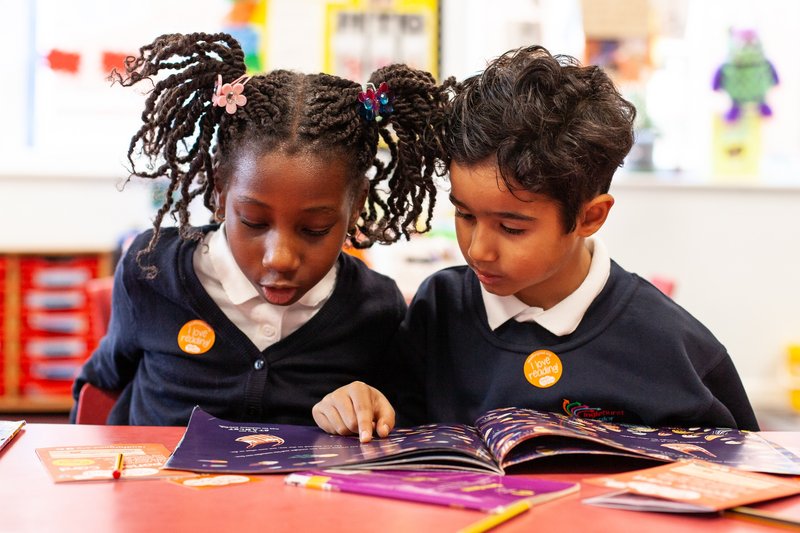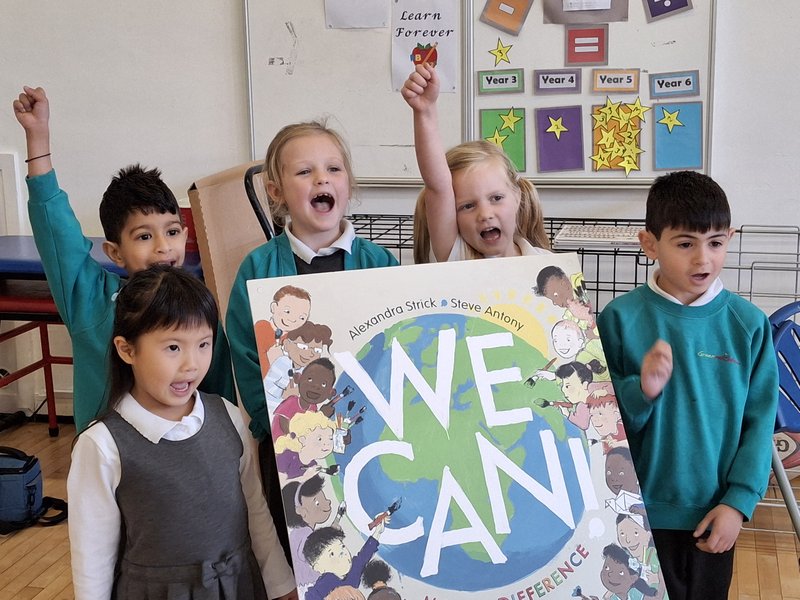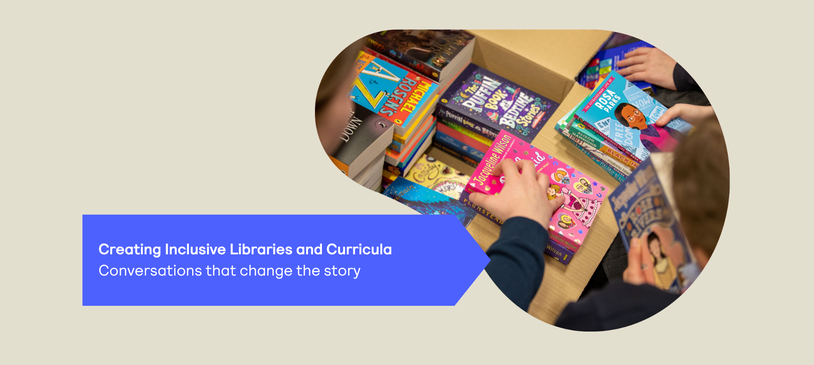Why the Books We Teach Matter
In schools, the books we teach are shaped by the past. Some texts – classical or contemporary - contain harmful representations that reflect biased ideologies or stereotyped representation. Yet some of these texts still feature on reading lists and library shelves. For educators, this presents a valuable opportunity - not to erase history, but to engage with it critically.
By facilitating reflective reading, we can help children develop the tools to question, analyse, and understand the world around them. This highlights the role of not only literacy leads, English teachers and librarians - it’s a whole-school approach to inclusivity, empathy, and safeguarding children from exposure to damaging representation while supporting critical thinking.
In July, we brought the Inclusive Libraries programme to Cardiff, where teachers and librarians from across the UK gathered to explore these opportunities to supporting reflective practice in reading and in curriculum delivery.
The event, Creating Inclusive Libraries and Curricula: Go Beyond the Secret Garden, featured powerful insights from authors Darren Chetty and Karen Sands-O’Connor. Award winning poet Connor Allen also joined us to share his experiences of race and masculinity, and Helen Borley from Mount Stuart Primary School shared practical insights on whole-school approaches to inclusivity.
In this article for TeachBrief, we’ll explore some of the key strategies and resources for diversifying your book offer, and ensuring every child feels represented in the classroom and library.

A whole-school approach to inclusivity can safeguard children from exposure to damaging representation.
We can't do everything. But that doesn't mean we can't do something.'
Darren Chetty, author
Reflective Practice: Facing Challenges Together
The powerful role that teachers and librarians have in creating real change – in children’s individual lives and wider society - cannot be understated.
In their workshop with attendees, Karen and Darren acknowledged that conversations around race and representation, in the classroom or with colleagues, can be sensitive.
To support implementation, they encouraged reflecting on the practicalities of inclusive work. Some points to guide this dialogue include
- What are the immediate challenges to doing this work?
- What are the concerns and worries?
- What else would be helpful to do this work?
Try this:
- Use these questions to structure a team discussion or identify need for CPD or additional support.
- Our Diverse Libraries webinars explore barriers to diversifying library collections, and how to create a more inclusive reading experience for all young people in the setting. As a free CPD, these are a great way to enhance your practice and start a practical discussion with colleagues.
Understanding Representation in Literature
Karen and Darren outlined a framework to support critical reflection and text selection. This identifies three stages of representation of racially minoritised people in British children’s literature:
- Sub-human or primitive: Characters are depicted as less-than, often serving as counterpoints to white protagonists. At the National Literacy Trust, our stance is that these representations have no place in the classroom.
- Marginal or allegorical: Characters are sidelined or represented symbolically, stripped of individuality or agency. Approach with caution – while potentially harmful, these texts can be an opportunity to engage critically and explore the history of representation in culture.
- Fully human with agency: Characters are complex, central to the narrative, and capable of shaping their own stories. These are the books we want to celebrate!
Try this:
- Use this framework when reviewing and selecting books. Where do the characters fall on this spectrum?
- In shared reading with pupils, encourage them to ask: Who has power in the story? Who gets to speak? Who changes?

Through reflective reading, we can support children to understand representation - building empathy and important critical thinking skills.
"You can't be what you can't see"
Helen Borley, Head of Mount Stuart Primary
Spotlight: Mount Stuart Primary
Representation matters. In our classrooms and libraries, the stories we share shape how children see themselves - and how they understand others.
Mount Stuart Primary in Cardiff is a model of inclusive practice. With pupils speaking over 30 languages, the school has embedded oracy and literacy development from nursery upwards. Headteacher Helen Borley shared practical tips on ensuring inclusivity into their book offer.
- Curating a smaller, more intentional book corner, filled with stories children can retell and recognise. Helen emphasised the importance of allowing children to become familiar with the stories available to them, to re-read them and be able to re-tell them.
- Children are given agency to choose books, but also guided by teachers and librarians who say, ‘Try this one, see what you think.’ This balance of autonomy and invitation nurtures both confidence and curiosity.
- Mount Stuart’s library spaces were developed with the Libraries for Primaries programme, which provided 500 quality diverse and classic texts to their collection.
What next? Resources for Inclusive Classrooms and Libraries
We know that inclusivity is foundational to raising literacy. At the National Literacy Trust, we deliver resources and CPD to support every aspect of literacy provision in schools.
- Supercharge your school library. This event highlighted how important it is that children can access a diverse range of books. Our Libraries for Primaries programme provides schools with a collection of 500 books, spanning the very best in children’s literature across classic and contemporary. We also provide equipment to enhance your library space, and training to help embody inclusion in your curriculum. And it’s completely free! So far, we have transformed over 1,000 school libraries and trained over 2,000 teachers and support staff. Don’t miss your chance – register your interest today.
- Explore materials for the classroom. Our suite of resources for promoting diversity through literacy, contains booklists and best practice ideas that can be used right now or in your forward planning – including ideas for supporting representation of refugees, LGBTQIA+ and Black History Month. For further inspiration, there’s also signposting to our partner organisations.
- Discover diverse books. The Young Readers booklist has something for each child in your school or library! Categorised by pupil identities and interests, we’ve also included suggestions based on age and level of reading enjoyment.
- For more in depth guidance on reflective practice and inclusivity, Darren and Karen’s book, ‘Beyond the Secret Garden: Racially minoritised people in British children’s books’ can be purchased here.
- Have you seen our recent report on the link between empathy and reading? This research illuminated several key considerations for educators and librarians on the possibilities for nurturing this important quality in schools.
